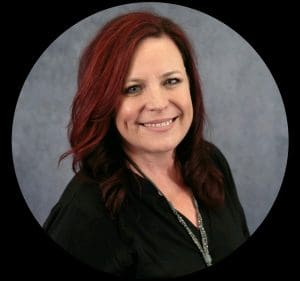Empowering the Next Generation of Mediators with Kids Managing Conflict. Member Spotlight: Anne Sawyer
With such an impressive mediation portfolio, it is surprising to hear that Anne Sawyer’s career in the field began “totally by accident”. Having started out as a paralegal and legal administrator, amassing over 30 years’ experience in the legal sector, it became evident to Anne that she didn’t want to continue down this route. It was around this time, she explains, that “by a fluke I was contacted by a professor from Pepperdine about a position” as a case manager for a mediation firm he was setting up. Keen to try something “off the beaten path”, Anne accepted, and thus began her now decade-long career in mediation. For this new role, Anne was required to undertake mediation training. She briefly pauses, before emphasising that “it changed my life so much that immediately I knew I wanted to implement it into my practise.”
Background In Mediation
 A short time after completing her training, Anne became the Executive Director of the Southern California Mediation Association. During her time as Executive Director, Anne passionately promoted mediation and alternative dispute resolution, demonstrating commitment to upskilling and empowering people and communities.
A short time after completing her training, Anne became the Executive Director of the Southern California Mediation Association. During her time as Executive Director, Anne passionately promoted mediation and alternative dispute resolution, demonstrating commitment to upskilling and empowering people and communities.
She explains that it’s not just mediation itself, but the power of the skill set in helping people to navigate conflicts in everyday life that is most important: “I wish I had those skills when I was younger. I wish I would have been empowered more, and that’s my focus now.” There is a definite recognition of how transformative mediation has been in Anne’s life, and her goal now is to give this gift to others.
The next challenge was: “How can we get those skills out there?” This question led Anne to her current role as President of Kids Managing Conflict, an organisation set up in partnership with the Southern California Mediation Association to promote peer mediation initiatives in schools.
Kids Managing Conflict
As President of Kids Managing Conflict, Anne’s work, along with her board and committee members, is two-fold: it involves continuing to raise money to support existing peer mediation programmes in schools; and “taking a hard look” at how the programming can be bolstered and supplemented with more training, resources and contacts in order to better meet the needs of grant recipients.
Technology has recently become a big part of this, allowing Kids Managing Conflict to move from simply “going into the schools and having everything operate in the schools, to trying to supplement those processes by generating resources in the cloud, or potentially utilising mobile applications to facilitate online mediation.” It also makes the programmes more wide-reaching, with technology bridging the gap between reaching more students and the finite nature of time and resources.
However, it’s not just about reaching more students, it’s about having impact. Driven by the feeling that “there are a lot of avenues that are not being utilised, or not being utilised in the best way for students,” Anne’s aim for Kids Managing Conflict is to continue to deliver a programme that is tailored to the students’ interests. This is why another of Kids Managing Conflict’s big foci is collecting and analysing data. Anne explained that much of the existing data is either incomplete or has become outdated in a world that is ever-changing. The hope is that the data gathered will give a fuller picture of what is happening in schools and how best to support students to thrive, both at school and in their future lives. It’s clear that Anne keeps her finger on the pulse of student life, developing training programmes that are both innovative and relevant for students.
Towards a bright(er) future?
The ethos of Kids Managing Conflict is very forward-looking, which naturally leads one’s curiosity to Anne’s own hopes and aspirations for the future. Her response is both thoughtful and realistic. “The important thing is to stay relevant, to move with the times,” she explained. “Anne could have this perfect picture in her mind of what would be amazing. But ultimately that may change based on the needs of the students. “My goal is to meet those needs,” and in so doing, “to pivot and adapt and change all of the time.”
When asked what wisdom she would impart to aspiring mediators, Anne emphasises education. This process of constant learning is epitomised in her own life and work, and it is something which she challenges the profession as a whole to prioritise. She tells me, “Once you think you know it, go back and get more training!”
Not only should we as mediators get that education, but if we can learn anything from Anne’s work with Kids Managing Conflict, it’s that we should prioritise ensuring that we give the next generation the best possible education in mediation and alternative dispute resolution as we possibly can.
“Even if they’re not mediating, they get such a valuable skill set that can’t be beaten with other social-emotional-type training. Every student mediator that we speak with will tell you hands down that the skill set translates beyond school: they take it home with them, they take it into their families with them, they take it into their professional lives once they graduate from high school”
“We need as many people in the universe with this skill set as possible,” especially young people, because “they are the next generation, they are going to be the next generation of leaders. […] Let’s get them armed with conflict resolution skills and prepared for the future.”
Article by Natalie Dewar, MBBI Writer
